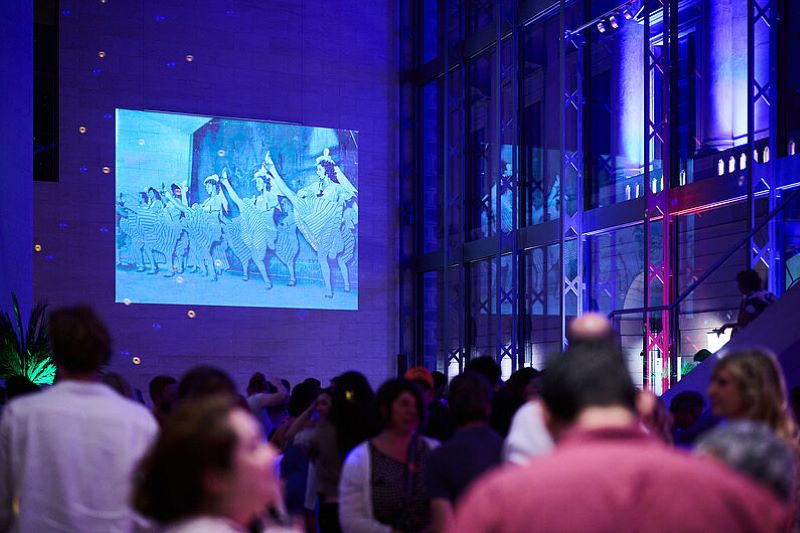In the spring of 2025, the global cultural and museum industry will usher in a new wave of “experience revolution”. From the deserts of North Africa to the tropics of Southeast Asia, from the ancient castles of Central Europe to the digital cloud, Egypt, Thailand and Germany are joining hands in science and technology, culture, architecture and education, and continue to refresh people’s traditional perception of “museums”: it is no longer just a “history in the display case”, but an immersive cultural experience, a dialogue between ancient and modern civilizations. Rather, it is an immersive cultural experience, a dialogue between ancient and modern civilizations.
Egypt: Into the “Talking” Ancient Civilization
In March 2025, after years of preparation, the Grand Egyptian Museum in Cairo’s Grand Giza Heights officially opened its doors to the public after a trial run, opening more than 100,000 pieces of its collection to the public, including the first collective display of Tutankhamun’s complete set of tomb treasures that have become the focus of global attention. Different from the traditional glass showcase, the museum introduced AI voice guide and augmented reality (AR) technology, the audience through smart glasses or cell phones can “restore” the ancient Egyptian scene – how the gold mask casting, mummies how to preserve, how to carry out sacrifices, the whole process of Interactive immersion.
Egypt’s General Director of Antiquities Mostafa Waziri Mostafa Waziri, said in an interview with the media: “We not only hope that tourists see, but also hope that they ‘understand’ Ancient Egypt. ” As a result, the pavilion has partnered with Google and a local Egyptian AI team to build a Turing-level intelligent tour system that answers visitors’ questions through natural language interactions, and even simulates ancient Egyptian pronunciation.
What’s more amazing is that the museum’s special “Digital Tomb Crossing Theater” combines 3D projection with a sensory floor, and every time a visitor steps into a space, the surrounding light and shadow switches with the situation – the opening of the tomb, the Pharaoh’s resurrection, and the rising of the star Sirius will bring the audience into a real experience like “Assassin’s Creed: Origins”.
Thailand: Creating a “Breathing” Local Cultural Space
Unlike Egypt’s “mega-project” style, the National Museum of Thailand (Bangkok) has taken a “decentralized” approach to museums. In 2025, at the beginning of the year, Thailand’s Ministry of Culture launched the “Living Museums Program”, which involves 18 museums across the country. In early 2025, Thailand’s Ministry of Culture launched the “Living Museum Program”, working with local communities in 18 provinces across the country, to “return the original dusty cultural heritage to the people”, and to promote temples, ancient houses, weaving workshops, and folk art bazaars to be transformed into “open-air exhibition areas”.
The most representative of these is the Lanna Traditional Life Center in Chiang Mai. This museum, which combines the architectural styles of the Lanna Dynasty, is curated by a group of local artisans and history scholars, and instead of cold labels on the exhibits, there is a group of community elders to explain the exhibits. Instead of cold labels on the exhibits, there is a “Community Elderly Interpretation Group”, where local elders tell visitors the stories behind their family genealogy and antiquities in the Lanna language from 10 a.m. to 3 p.m. every day, creating a “living cultural scene”.
In addition, Thailand also joined hands with the TikTok Southeast Asia Content Alliance to organize the “A Day in the Life of a Museum” video challenge, encouraging young people to film short dramas, show their crafts, and perform dances in the exhibition area, and promoting the transformation of museums from “visiting” to “participating”. This is to promote the shift from “visiting” to “participating” in museums. According to Thailand’s Ministry of Culture, in the first quarter of 2025, the social communication volume of museum-related content increased by 213% year-on-year, with the proportion of 18-to 30-year-olds exceeding 50% for the first time.
Germany: Deconstructing the “Third Space” of Culture with Technology
German museums have always been known for their rigor and system, but in recent years, they have also quietly launched a “spatial transformation” experiment. The Humboldt Forum in Berlin has redefined the function of the museum as a public space in the city. In addition to exhibiting artifacts from Africa, Asia, and the Pacific, the museum is launching a new program, the Digital Archaeology Workshop, in early 2025.
In this program, visitors will be able to simulate the entire process of “archaeology” through VR equipment: from excavation, restoration, modeling, to digital archiving, and participate in cataloguing exhibits as “digital curators”. This experience not only satisfies the curiosity of the audience but also builds a bridge between education, research, and collection management. The program now offers joint courses with more than 20 universities in Germany, giving museum education a deeper meaning.
In addition, the “Night Museum Network Program” launched by the German Museum Federation is also quite innovative. Through IoT-sensitive lighting, a real-time sound system and immersive projections, the exhibits “sound” from proximity when visitors visit in the evening: musical instruments play, ancient bells chime, and sculptures are projected, creating a “space that echoes the presence of people.”A survey in April 2025 showed a 46% year-on-year increase in the number of night-time visitors to German museums, with 80% of visitors reporting that “the exhibits have become more emotional and memorable”.

Resonance in Three Countries: Redefining “Seeing the Museum”
Whether it is Egypt’s technological epics, Thailand’s community revitalization, or Germany’s sensory intelligence, the innovations of museums in the three countries jointly respond to a key question: “How can we make culture palpable, sensible, and participatory?” This trend shows that the global cultural and museum community is moving from “collection-oriented” to “audience-oriented”, and from “static display” to “dynamic participation”. From “static display” to “dynamic participation”. Museums are not only memory cabinets of civilization, but are also becoming technology laboratories, cultural co-creation spaces, and connectors of social emotions. In the rapid change of digital media, youth cultural participation is unprecedentedly high, a more “interesting” museum, not just a large collection, a large building, but one to lets people see and understand, play with, and walk close to.
From the pyramids to the village of Lanna, from digital archaeology to intelligent theater, the museum is no longer a cold “fortress of knowledge”, but has become a public stage for civilization dialogue. In the future, more and more countries may join this competition of “letting culture come alive”, so that the world’s civilization can be “seen”.













Leave a comment